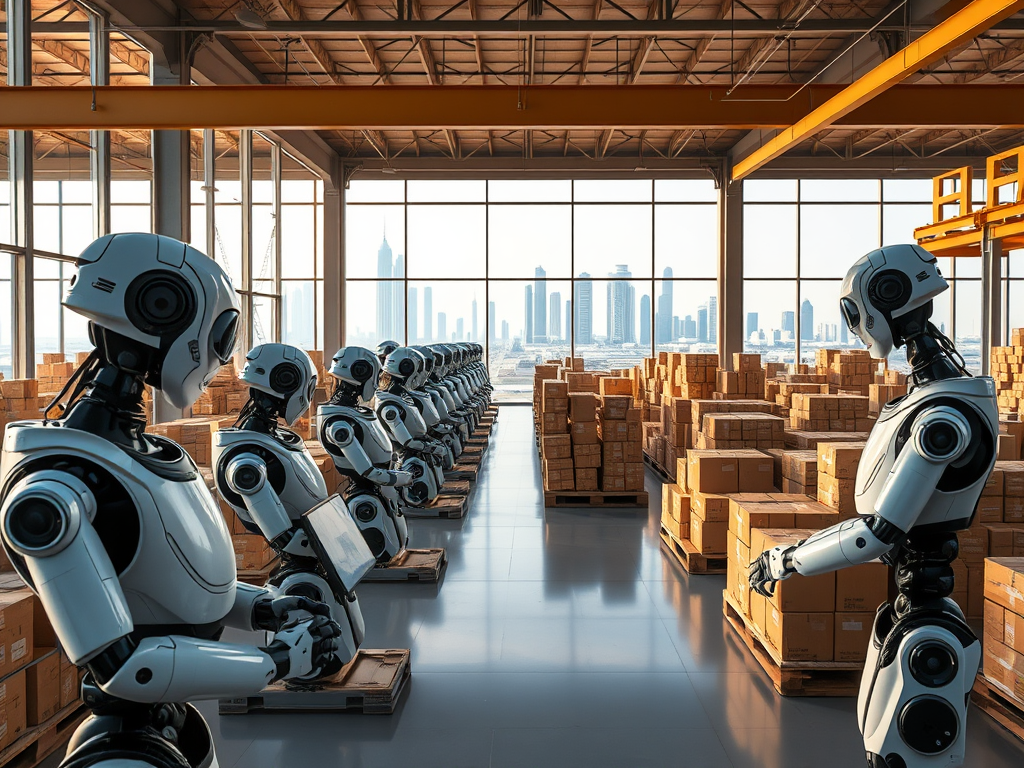Dubai is emerging as a global hub for artificial intelligence (AI), revolutionizing its supply chain platforms to enhance efficiency, reduce costs, and improve customer service. The integration of AI into logistics and supply chain management has allowed businesses in Dubai to leverage data-driven insights, predictive analytics, and autonomous systems. This significant shift marks not just an advancement in technology but a complete transformation of how goods are transported, stored, and delivered in the region. Companies adopting these innovations are not only optimizing their operations but also setting benchmarks for the rest of the world. This article delves into the growth of AI-driven supply chain platforms in Dubai, examining the factors contributing to its success and the benefits realized by various industries.
The Role of Government Initiatives

The government of Dubai plays a pivotal role in fostering an environment conducive to the growth of AI-driven technologies. Several initiatives have been launched to promote the adoption of AI, particularly within the supply chain sector. These initiatives include investment in technology infrastructure, partnerships with global tech firms, and the establishment of innovation labs. Furthermore, the Dubai Future Accelerators program actively supports startups focusing on AI solutions, encouraging collaboration between public and private sectors. The following are major initiatives influencing growth:
- Dubai Smart City Initiative: Aiming to transform Dubai into the world’s smartest city through innovative technologies.
- Integrated Transport Strategy: Enhancing logistics and transportation networks in alignment with AI advancements.
- AI Strategy 2031: A comprehensive plan to position Dubai as a leader in the AI landscape, spanning various industries including supply chain.
Technological Advancements Enhancing Supply Chains

The proliferation of advanced technologies such as Internet of Things (IoT), machine learning, and automation is integral to the rise of AI-driven supply chain platforms. These technologies facilitate real-time data collection and analysis, enabling companies to identify inefficiencies and respond proactively. IoT devices help in tracking inventory levels and conditions while machine learning algorithms predict demand and optimize stock levels, which minimizes wastage and reduces costs. Additionally, automation tools streamline order processing and transportation logistics, resulting in faster delivery times and improved customer satisfaction. Some key technological advancements include:
- Predictive Analytics: Uses historical data to forecast future trends and demands.
- Robotics and Automation: Automates warehouse operations and last-mile delivery.
- Blockchain Technology: Enhances transparency and traceability in supply chain processes.
Impact on Local Businesses and Job Creation
The adoption of AI-driven supply chain platforms has significantly impacted local businesses in Dubai, leading to improved operational efficiencies and competitiveness. Companies employing these platforms have reported increased revenue due to enhanced customer experiences and rapid response strategies. Moreover, as businesses invest in AI technologies, they create new job opportunities in fields such as data analysis, technology maintenance, and logistics management. However, this shift also requires a workforce equipped with new skills, prompting educational institutions and companies to collaborate on training programs. The following aspects highlight the benefits realized by local businesses:
- Cost Savings: Reducing logistics costs through smarter inventory management.
- Increased Efficiency: Streamlined processes lead to faster turnaround times.
- Market Expansion: Improved supply chain capabilities allow businesses to enter new markets.
Despite the numerous benefits, the growth of AI-driven supply chain platforms in Dubai faces several challenges. Concerns regarding data security, integration with existing systems, and the high initial investment required can hinder progress for some businesses. Companies need to strike a balance between innovation and security, ensuring that data breaches do not compromise sensitive information. Solutions to these challenges include gradual implementation of these technologies, seeking government assistance, and embracing training programs to upskill employees, thereby creating a culture of adaptability. Addressing these challenges will be crucial for the sustained growth of AI-driven supply chains.
Conclusion
In conclusion, the growth of Dubai’s AI-driven supply chain platforms demonstrates the city’s determination to leverage cutting-edge technology for enhanced operational efficiency. Supported by government initiatives, technological advancements, and a focus on business development, these platforms are reshaping the logistics landscape. As more companies in Dubai adopt AI solutions, the region is set to become a critical player in the global supply chain arena. However, to fully realize the benefits, stakeholders must continuously address challenges and invest in workforce development, ensuring a sustainable future for AI-driven supply chains.
Frequently Asked Questions
1. What role does the Dubai government play in promoting AI-driven supply chains?
The Dubai government fosters an environment for AI growth through initiatives like the Dubai Smart City Initiative and the AI Strategy 2031, which aim to create a supportive infrastructure for technology adoption.
2. How is AI technology implemented in supply chain management?
AI technologies are implemented through predictive analytics, automation, and IoT devices which help in optimizing inventory management and logistics processes.
3. What challenges do businesses face when adopting AI technologies in supply chains?
Businesses may face challenges such as data security concerns, high initial investments, and integration with legacy systems when adopting AI technologies.
4. How does AI-driven supply chain management benefit local businesses in Dubai?
AI-driven platforms benefit local businesses by enhancing operational efficiency, reducing costs, and improving customer satisfaction, ultimately leading to increased revenues and market expansion.
5. What skills are needed for the workforce in AI-driven supply chains?
The workforce needs skills in data analysis, technology maintenance, and logistics management, prompting educational institutions and companies to develop training programs to equip employees accordingly.


